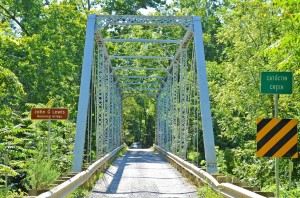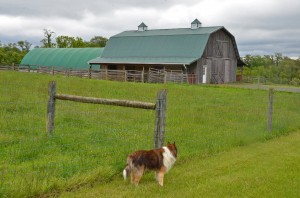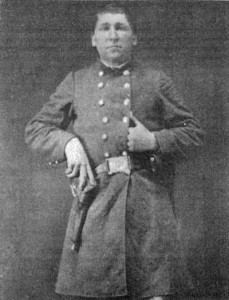There is a growing effort to save Loudoun County’s old gravel roads from being paved.
By some accounts, Loudoun has more unpaved roads than any other County in the Commonwealth – about 250 miles – down from what some say was once 500 miles.
The County has, especially in the West, resisted attacks to develop and destroy the County’s pastoral setting; but, if something isn’t done, there will be fewer miles of unpaved roads.
Some walk or ride down Lovettsville’s Georges Mill, nearby Axline Road, Picnic Woods Road, or Ash George Road.
Over by Waterford, there’s the Clover Hill Road, and Downey Mill Road.
There are an array of roads south of Lincoln, Virginia.
In every direction near Middleburg, there are unpaved roads to discover worth a walk a run, a trot, or a ride.
Tim Jon, a columnist for the Blue Ridge Leader, has been cataloguing the beauty of the roads of Loudoun County for years.
The effort to save these roads has prompted a partnership by and between America’s Routes and the Mosby Heritage Area Association, hoping to underscore the hundreds of years of history and beauty and country peace that these roads represent.
The objective is to inform and persuade Loudoun County leaders that this network of gravel roads should be preserved, not further compromised, that they must protect these weaving, tree lined avenues, running parallel to stone walls, and creeks and streams, that pass by three and four board fences, inclosing livestock paddocks, that they cross historic bridges like the Feather Bridge near Waterford, and slide past long used churches and stores and civil war battlefields.
Proponents of the gravel roads find it impossible to understand why someone moves into a home at the end of an historic and scenic gravel road in horse and hunt country in Western Loudoun, and then wants to pave the road.
The most frequent objection, mostly by newcomers, but not exclusively, is that you can’t drive a car as fast and dust gets on your car.
These gravel and dirt roads, supporters say, were there when some who object bought their homes.
There are many who knew what they were getting into, wanted country living, and these gravel roads as their retreat from the homogenous sameness that engulfs society at every turn elsewhere.
Some “save the road” supporters claim a gravel road is not just scenic and historic but safer for themselves, their children, for their pets, to walk or run, and to trot a horse from a barn or adjoining meadow.
The Georges Mill Road, as one example, going back at least since 1759, ran down to the Potomac river where you could make your way along the bank to the Virginia side of Harper’s Ferry.
It’s a road that appears pretty much the way it was when Union soldiers encamped in the field by the historic Georges Mill School House.
In November 1864, shortly after President Lincoln’s re-election, Mosby’s men climbed through the woods over the Short Hill Mountain from the West to attack the Union troops.
Harrison Sherwood, who lives off Stevens Road, itself off Georges Mill Road, has walked and studied this hallowed ground on a quest to discover historic treasure, and found a bayonet and other civil war artifacts.
Mr. Sherwood insists that he found the path that Mosby’s men took over the Short Hill Mountain when they engaged General Devin’s men by Georges Mill School House.
If you had been sitting in Mr. Sherwood’s living room in 1864, he suggests, “chances were very good that those cracking twigs up the hill were Mosby’s men and his ‘berserkers’ sneaking around up there.”
“If you knew what was good for you,” Mr. Sherwood said, “you’d put another log on the fire, pull your blanket up around your ears, and hope to hell Mosby’s principal, a man named Mobberly, wasn’t here to relieve you of your horses or your daughters, ‘cos if he wanted ’em, he took ’em, and you had no say in the matter.”
Loudoun is thick with history that we must preserve and protect.
It’s also has miles of road intertwined with that history.




